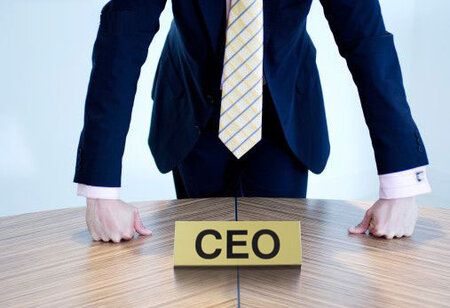 The fast-changing business world seems to be opening the direct door from CFO to CEO, shaping a new CFO career path for leaders rising in global finance. A CFO, who traditionally looked after costs and reporting, must now think strategically about every business process so that cross-functional insight and leadership influence are within the company’s vision. Presently, many boards view their CFOs as the natural successor to lead the business through to steadier times. This signals a broader wave of finance business transformation and strategic repositioning. CFOs with credit for financial discipline, operational leadership, and stakeholder trust are accepting CEO roles and redefining how a company grows, adapts, and leads.
The fast-changing business world seems to be opening the direct door from CFO to CEO, shaping a new CFO career path for leaders rising in global finance. A CFO, who traditionally looked after costs and reporting, must now think strategically about every business process so that cross-functional insight and leadership influence are within the company’s vision. Presently, many boards view their CFOs as the natural successor to lead the business through to steadier times. This signals a broader wave of finance business transformation and strategic repositioning. CFOs with credit for financial discipline, operational leadership, and stakeholder trust are accepting CEO roles and redefining how a company grows, adapts, and leads.
In this article, we spotlight 10 leaders rising in global finance who have either successfully made the CFO to CEO transition or are in line through strategic CEO succession planning. They represent a new wave of business leadership—analytical, agile, and accountable.
- Ruth Porat, President & Chief Investment Officer, Google –
.png)
Ruth Porat, who was once CFO of Alphabet and Google, now serves as President and Chief Investment Officer. This is one of the most dramatic changes of a CFO tied to the broader CTO line in tech. Since 2015, she has brought a level of financial rigor and strategic clarity to Alphabet during times of volatility, cost restructuring, and growth worldwide. Today, Ruth Porat manages the company's investments in GV, CapitalG, and Other Bets, while spearheading initiatives on global economic opportunity, infrastructure, and inclusion for Google. Internationally renowned as a force in finance and technology governance, Ruth Porat personifies the ways CFOs can reshape the face of executive leadership in the digital age.
- Indra Nooyi, Former-CEO, PepsiCo –
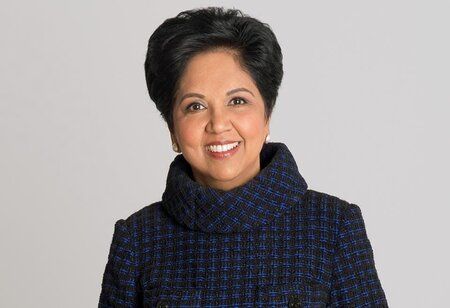
Indra Nooyi is one of the most iconic CFO-to-CEO transitions in corporate world history; she was CEO of PepsiCo from 2006 to 2018. Born in India and now a naturalized American businesswoman, she is admired for attempting to turn the worldwide giant into a somewhat healthier brand with sustainability at its core. Under her guidance, revenues exploded by 80% and acquisitions of Tropicana and Quaker Oats were finalized. The first-ever woman to head PepsiCo, she established an agenda called the "Performance with Purpose," wherein she demonstrated that one can seek profit and seek a worthy cause at the same time.
- Amy Hood, Executive Vice President & Chief Financial Officer, Microsoft –
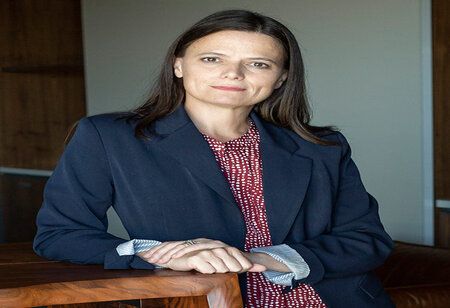
Amy Hood has been Microsoft’s CFO since 2013 and has been integral to the financial discipline and strategic direction of the company. Considered a trusted partner to CEO Satya Nadella, she has championed Microsoft’s cloud-first pivot and acquisition strategy for key companies such as LinkedIn, GitHub, and Nuance. Hood had been a partner at Goldman Sachs before she became, in 2013, Microsoft’s first female CFO; she has overseen more than 57 acquisitions, which in the process has seen the tripling of the stock value of the company.
- Michael J. Cavanagh, President, Comcast Corporation –
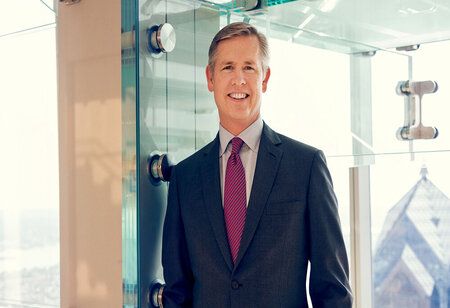
As the CEO of Comcast, Michael J. Cavanagh is at the helm of a big global media and technology company. He joined the organization in 2015 as CFO and was promoted to President in 2022. He formerly participated in leadership positions at JPMorgan Chase and The Carlyle Group. Having close to 182,000 employees, he helps run Comcast alongside the CEO. Having studied at Yale and the University of Chicago, Cavanagh contributes extensively in the areas of finance, leadership, and strategy.
- Safra Catz, CEO, Oracle –
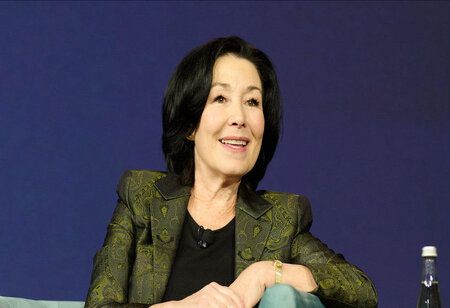
Since 2014, Safra Catz has held the position of CEO of Oracle, becoming one of the most powerful women in the global tech and finance space. The former banker joined Oracle way back in 1999 and was the driving force behind major acquisitions like PeopleSoft. She was CFO and Co-President before ascending to the sole CEO position. Distinguished for her operations-oriented perspective and strategic discipline, she has been able to make Oracle profitable and enduring. These examples highlight how modern CFO leadership is no longer limited to reporting but plays a decisive role in innovation, transformation, and long-term planning. She also sits on the boards of Disney and In-Q-Tel and teaches at Stanford Business School.
- Cyril Gabriel, Chief Executive Officer, Academy Xi –

With over 15 years of experience in finance and operations, Cyril Gabriel is the CEO of Academy Xi. Previously CFO at Prosys, he was able to lead Prosys through a successful sale to Convergint and also held other roles in VFS, Lloyds, and Ford. Cyril, with two Master’s degrees in Accounting and Finance and an MBA, was shortlisted for the Australian CFO Awards for three years in a row. He is responsible at Academy Xi for enterprise growth, operational excellence, and innovation in education through strategic leadership and financial expertise.
- Ritesh Tiwari, Executive Director, Finance & IT and Chief Financial Officer, Hindustan Unilever Limited –
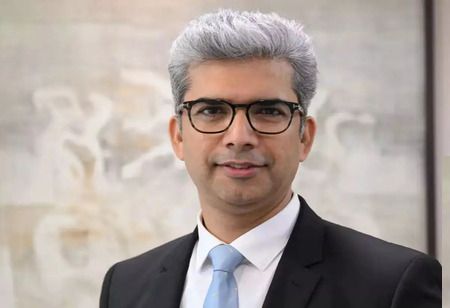
Ritesh Tiwari, Executive Director, Finance & IT, and CFO of Hindustan Unilever Limited, has a strategic role supporting the CEO in value-led growth and long-term impact. Having over 25 years of experience internationally, he pairs his financial knowledge with a digital-first view. A collaborative leader, he enables the redefinition of business possibilities, simplification of systems, and enhanced performance. A deep partnership with the CEO ensures the alignment of financial strategy with business vision to deliver stakeholder value.
- Shou Zi Chew, CEO, TikTok –
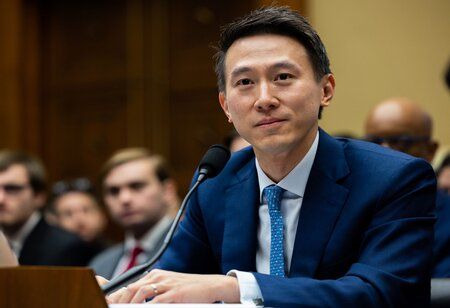
Shou Zi Chew, a Singaporean business tycoon, has been serving as the CEO of TikTok since 2021. He started his career in Goldman Sachs in London, later venturing into venture capital at DST Global, where he handled the firm's investments in JD.com and Xiaomi. He soon started working as Chief Financial Officer (CFO) of Xiaomi in 2015, followed by taking on the CFO role at ByteDance in 2021. Later on, he also became Chief Executive Officer (CEO) of TikTok. A Harvard MBA graduate, Chew earned his reputation for handling TikTok amid regulatory scrutiny and global rollout.
- James Gorman, Former-CEO, Morgan Stanley –
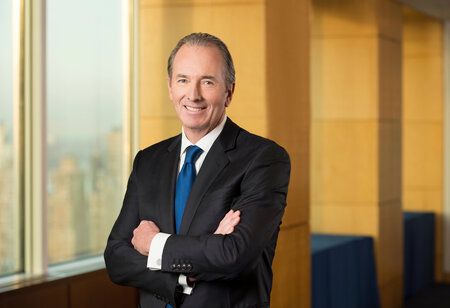
James Gorman is the former CEO and Chairman of Morgan Stanley, serving from 2010 to 2023, and currently holds the title of Chairman Emeritus. Under his leadership, the firm expanded significantly, including key acquisitions like Smith Barney and E*Trade. An Australian-born lawyer turned financier, Gorman previously held senior roles at Merrill Lynch and McKinsey. In 2025, he became Chairman of The Walt Disney Company. Known for his strategic acumen, Gorman is a respected figure in global finance and corporate governance.
- Stephen M. Scherr, CEO, Hertz –
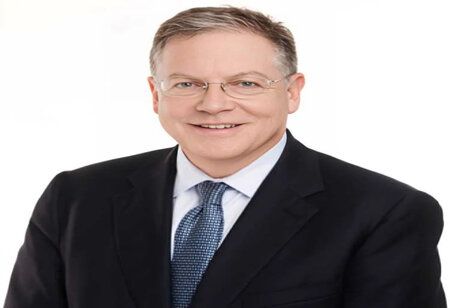
Stephen M. Scherr is a seasoned financial leader and former CEO of Hertz Corporation (2022–2024), where he spearheaded the expansion of its electric vehicle fleet. A Harvard Law graduate with a bachelor's from Princeton, Scherr spent nearly three decades at Goldman Sachs in key roles, including CFO and Chief Strategy Officer. He played a pivotal role in launching Marcus and AppleCard. Now Co-President of Pretium, Scherr continues to influence strategic finance. He also serves on prominent cultural and scientific boards.
In conclusion, the CFO-to-CEO transition reflects a broader shift in business leadership, one where analytical thinking, financial discipline, and operational expertise - hallmarks of strong CFO leadership - are increasingly foundational to driving innovation and resilience. These ten leaders exemplify how modern CFOs are not just guardians of the balance sheet but visionary executives shaping the future of global enterprises. As CEO succession planning becomes more data-driven and strategic, CFOs are emerging as natural candidates. Their financial acumen and vision also align with areas like wealth management for executives, investor relations, and ESG performance.
 The fast-changing business world seems to be opening the direct door from CFO to CEO, shaping a new CFO career path for leaders rising in global finance. A CFO, who traditionally looked after costs and reporting, must now think strategically about every business process so that cross-functional insight and leadership influence are within the company’s vision. Presently, many boards view their CFOs as the natural successor to lead the business through to steadier times. This signals a broader wave of finance business transformation and strategic repositioning. CFOs with credit for financial discipline, operational leadership, and stakeholder trust are accepting CEO roles and redefining how a company grows, adapts, and leads.
The fast-changing business world seems to be opening the direct door from CFO to CEO, shaping a new CFO career path for leaders rising in global finance. A CFO, who traditionally looked after costs and reporting, must now think strategically about every business process so that cross-functional insight and leadership influence are within the company’s vision. Presently, many boards view their CFOs as the natural successor to lead the business through to steadier times. This signals a broader wave of finance business transformation and strategic repositioning. CFOs with credit for financial discipline, operational leadership, and stakeholder trust are accepting CEO roles and redefining how a company grows, adapts, and leads..png)








